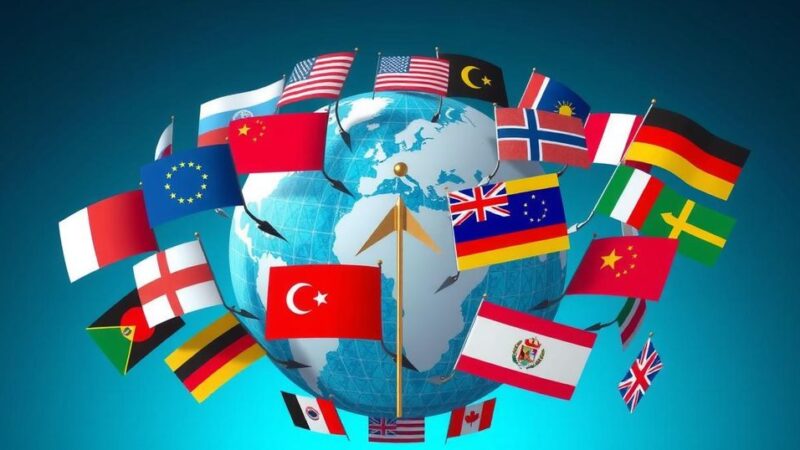This article discusses the potential of a developmentalist coalition in Nigeria to address the country’s underdevelopment, characterized by poverty, corruption, and unemployment. It emphasizes the need for like-minded individuals to unite under development nationalism to enhance productivity and governance. By drawing insights from successful coalitions in other countries, the article advocates for a focused political party directed toward national progress. It concludes that systematic collaboration is essential for Nigeria to utilize its resources effectively and foster a brighter future for its youth.
Nigeria possesses significant human and natural resources; however, it remains entrenched in underdevelopment. High rates of poverty, unemployment, corruption, and inequality continue to plague the nation, compounded by escalating ethnic violence and terrorism. This dire situation is further exacerbated by ineffective economic management and political leadership, which has neglected to promote essential structural reforms in both the economy and governance.
As a political scientist specializing in the political economy of development, I posit that Nigeria’s multifaceted crises stem from the lack of a cohesive group prioritizing national interests. I advocate for the formation of a “developmentalist coalition,” comprising individuals united by the ideology of development nationalism. This coalition would be dedicated to advancing Nigeria’s prospects while ensuring that its citizens can reach their potential and contribute positively to the nation.
Development nationalism encompasses the commitment to fostering national prosperity and enhancing the capabilities of citizens. Individuals within the coalition would place their loyalty to Nigeria above all other identities, focusing on increasing productivity and improving wellbeing. Through collaboration, they could dismantle the cycle of underdevelopment, measured by the establishment of a stable governance structure characterized by the rule of law and essential public services.
Developmentalist coalitions have significantly influenced political and economic paradigms in various developed nations, such as China, Malaysia, and South Korea. In some cases, these elites have formed their political parties; for example, the People’s Action Party in Singapore exemplifies this. Alternatively, they may contribute to different parties while ensuring that any governing body adheres to the foundational values of their nation. Hence, members of the coalition would provide moral and political leadership similar to that of Nelson Mandela in South Africa, fostering inclusive systems that align with development objectives.
Since gaining independence in 1960, the Nigerian political elite has often prioritized personal gain over national advancement, leading to an undiversified economy and a shrinking manufacturing sector. Funding for education has been inadequate, falling short of the 26% recommended by UNESCO, leaving youth ill-equipped to enter the job market. Consequently, many young Nigerians work in the informal economy, which lacks stability and proper wages, with a significant portion being underemployed in low-value activities, consequently underutilizing this demographic, which constitutes approximately 70% of Nigeria’s population.
The lack of a unified coalition among individuals focused on development prevents progress toward industrialization and better governance. The goal now is to establish such a coalition, comprised of developmentalist elites determined to change Nigeria’s trajectory.
To effectuate this change, the coalition must have visionary leadership that emphasizes both development and national unity. By creating a political party, its members can contest elections, attain power, and implement policies aimed at national development. Disciplined party members must prioritize collective goals over personal ambitions to ensure the party remains functional rather than a stronghold for individual interests.
This coalition is imperative to eliminate systemic corruption while promoting a robust manufacturing sector, a thriving digital economy, and investments in agriculture and infrastructure, ultimately aimed at job creation and poverty alleviation. The overarching vision should be a transformed democracy in Nigeria, where political parties and elected representatives truly serve the populace’s interests.
In conclusion, Nigeria’s myriad challenges are deeply rooted in the absence of a unified commitment to national development. The establishment of a developmentalist coalition is crucial for mobilizing resources and leadership toward meaningful reforms that prioritize the nation’s well-being. By fostering collaboration among like-minded individuals, Nigeria can harness its potential and transition towards a more prosperous and equitable future. Through a disciplined approach to governance and a focus on inclusive economic growth, the country can break free from the cycle of decline.
Original Source: theconversation.com





